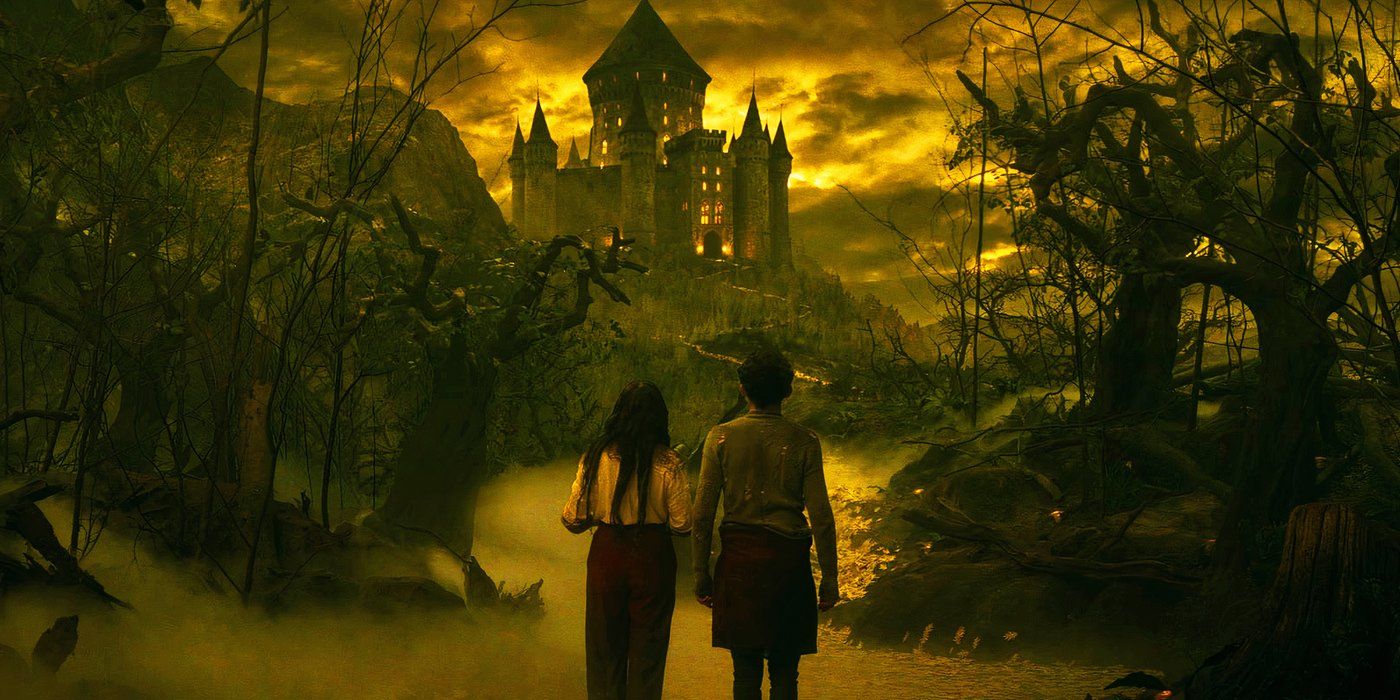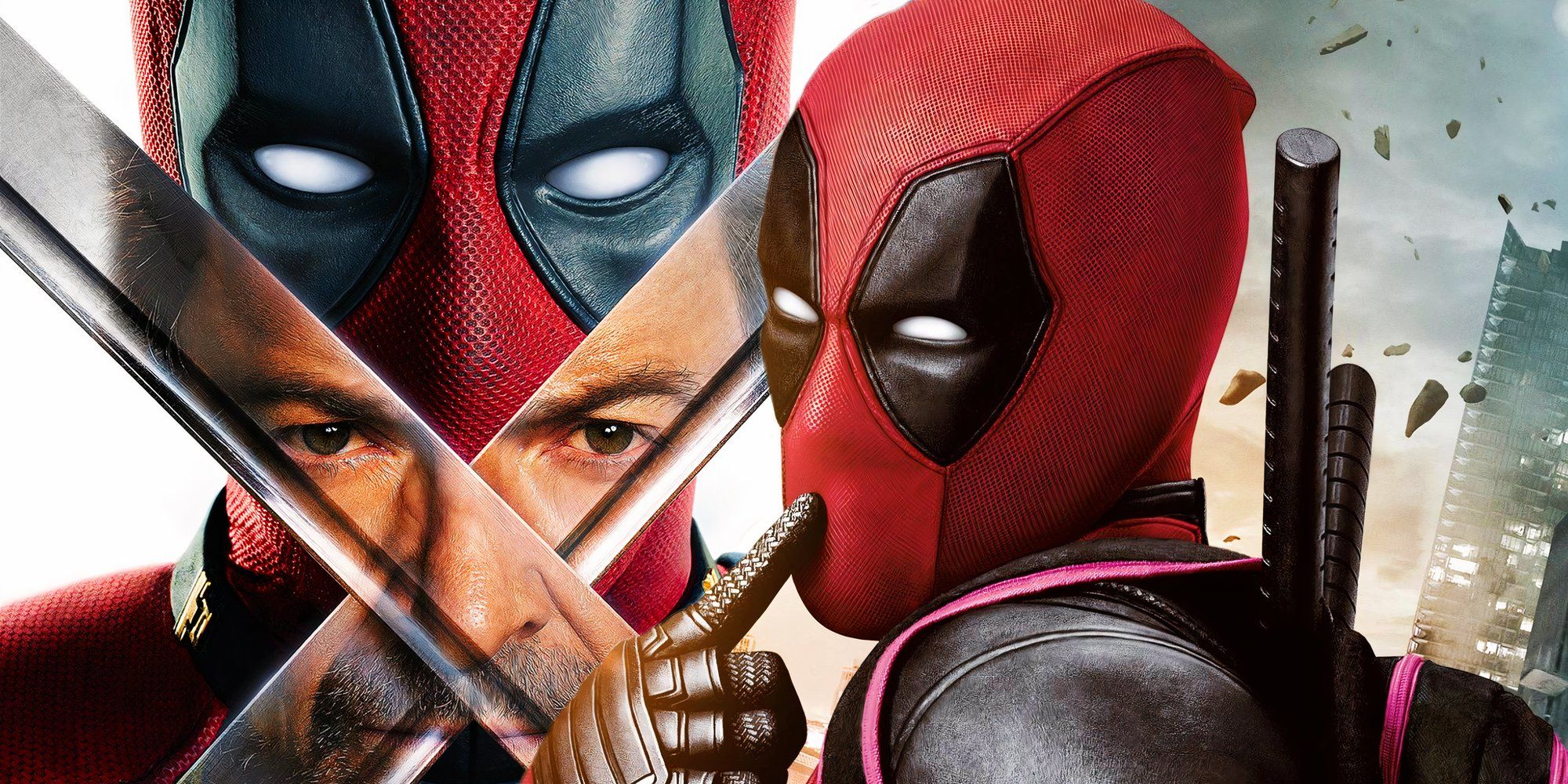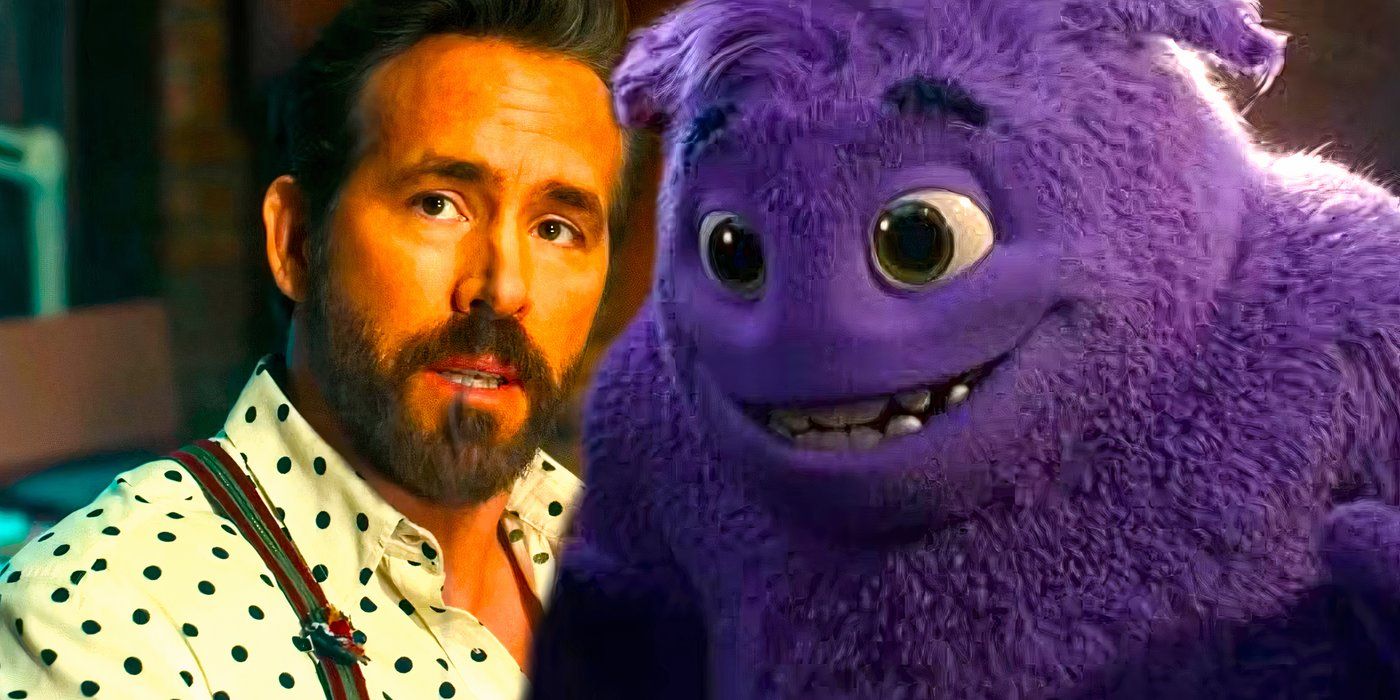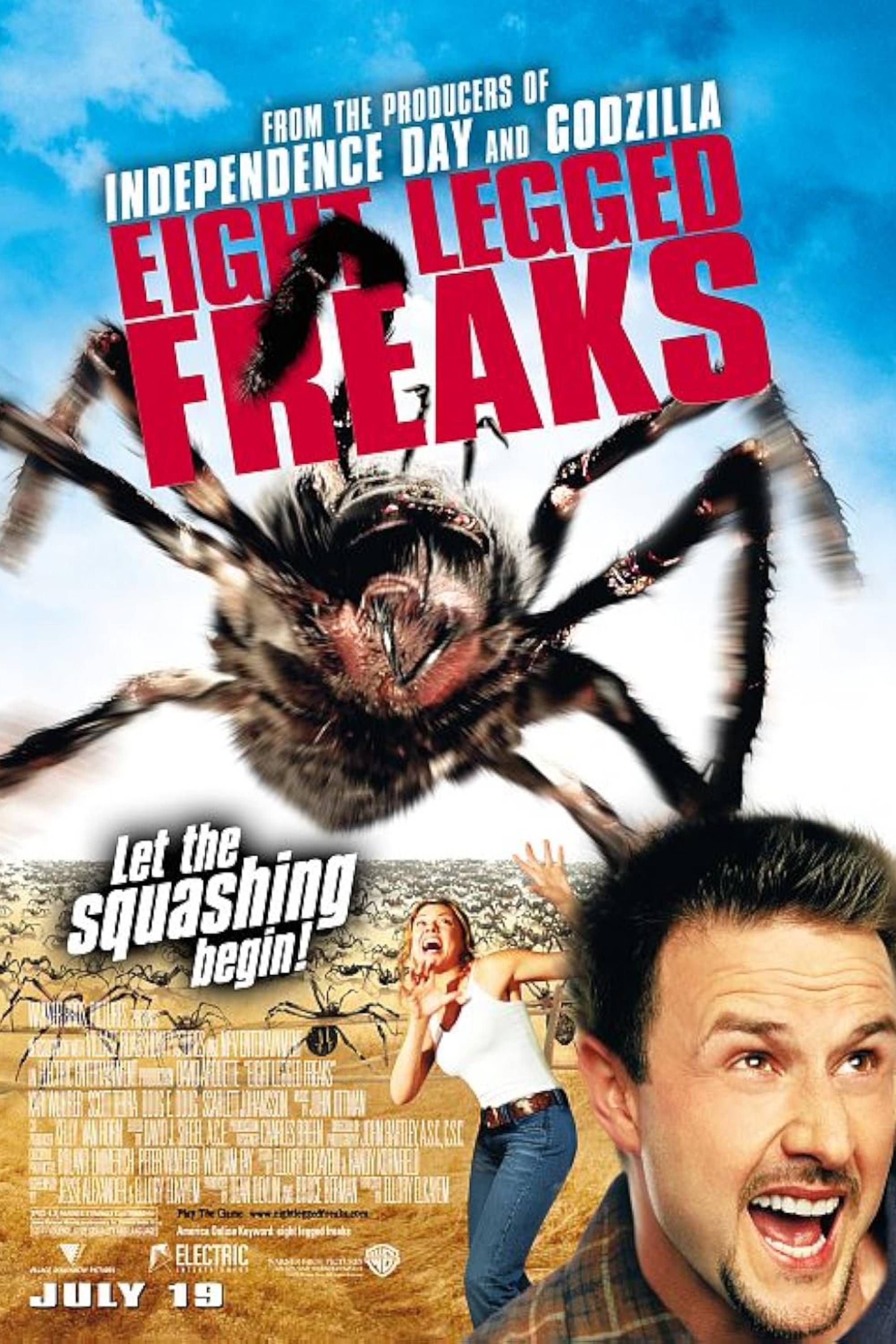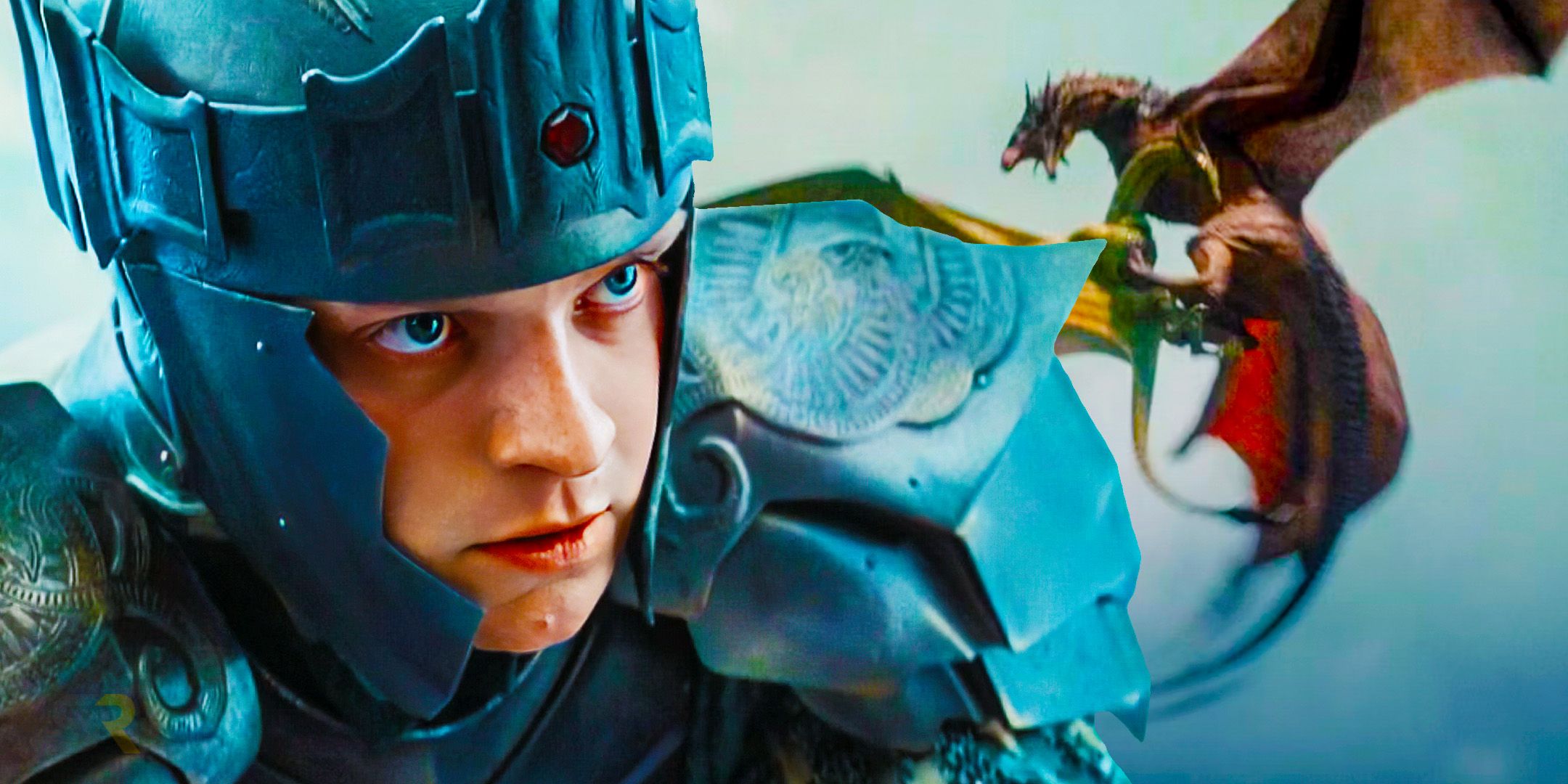Warning: This post contains major spoilers for Oppenheimer!
Oppenheimer’s ending leaves its audience pondering a question posed by physicist J. Robert Oppenheimer’s wife Kitty — can the world ever forgive the scientist for his role in the atomic bomb? Written and directed by Christopher Nolan, Oppenheimer follows the titular character (Cillian Murphy) through the decades, including his work on the atomic bomb, which the U.S. government detonated over Hiroshima and Nagasaki, and the hearing launched by Lewis Strauss that would strip Oppenheimer of his security clearance.
Oppenheimer wraps up its story by revealing the conversation between Oppenheimer and Albert Einstein. The film goes back to that moment after Oppenheimer’s hearing revoked his security clearance and Strauss’ appointment to the position of Secretary of Commerce was denied by the Senate. Einstein tells Oppenheimer that after the world has punished him enough, they’d give him medals and forgive his work on the atomic bomb, but forgiveness would be for them, not for Oppenheimer. Oppenheimer then reveals that the calculations that would bring about the end of the world happened, which rattles Einstein enough to walk away. In Oppenheimer’s head, he watches the world’s destruction due to nuclear war.
Strauss & Oppenheimer’s Parallel Hearings Explained
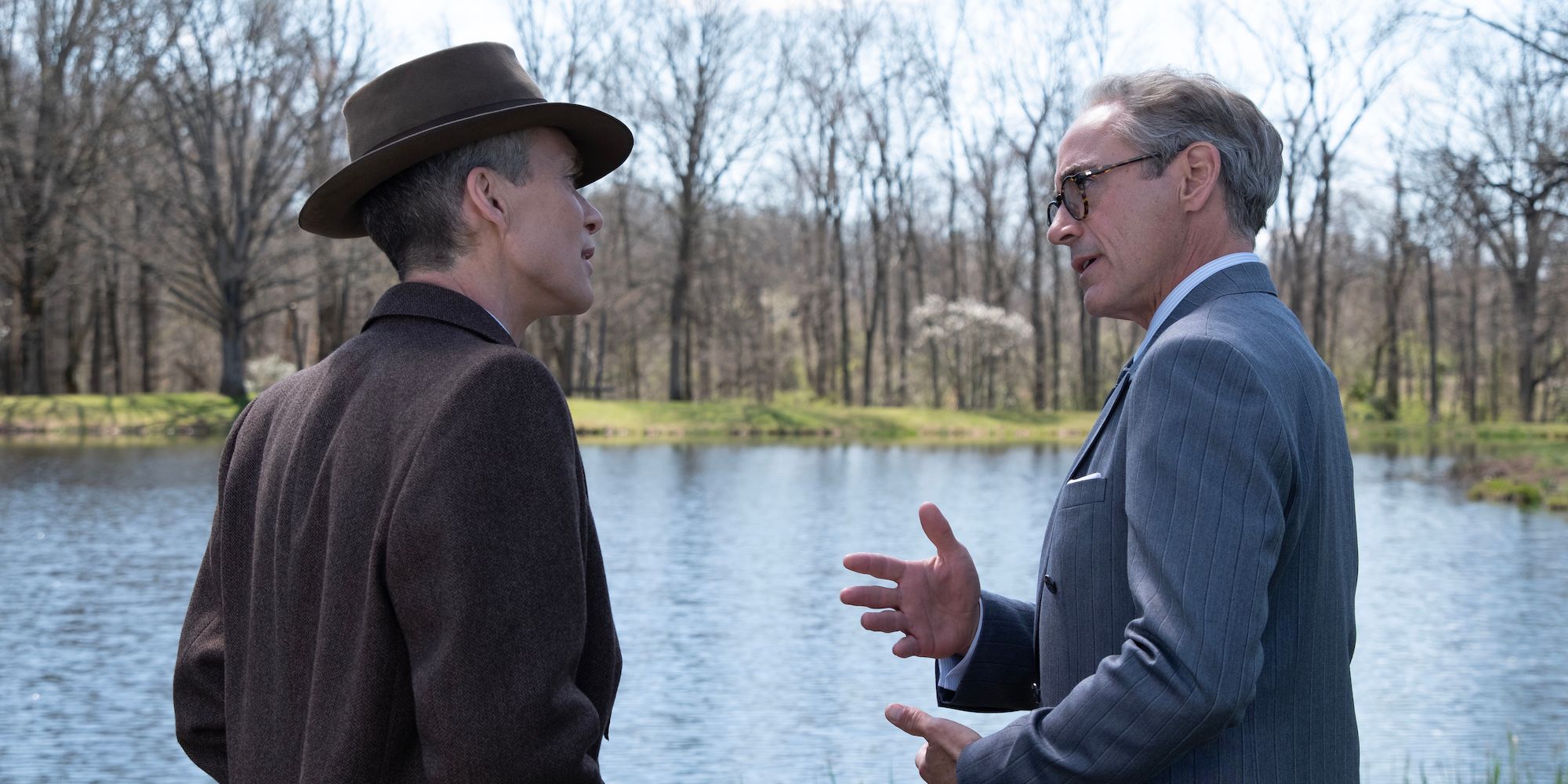
Lewis Strauss had a personal grudge against Oppenheimer that he never forgot. After being snubbed and publicly ridiculed by Oppenheimer, who had mocked Strauss’ answer at a hearing regarding radioisotopes, Strauss decided to take matters into his own hands. Strauss didn’t want to run the Atomic Energy Commission (AEC) if it meant Oppenheimer would continue to influence government decisions on nuclear weapons, especially since they were in opposition regarding its dangers. It was largely pettiness fueling Strauss’ actions, and Nolan paralleling his and Oppenheimer’s hearings created a push-pull dynamic that represented their disparate views and gave the audience two arguments.
While Strauss derailed Oppenheimer’s career, he ultimately failed in securing his own seat on the cabinet because of the opposition against him by other scientists, much of the Democratic Party, which included John F. Kennedy, who later helped rehabilitate Oppenheimer’s reputation. The parallel hearings also brought to light the fact that Oppenheimer had changed his mind about nuclear weaponry and their use against people in political conflicts. Oppenheimer ultimately changed his mind, opposing the development of the hydrogen bomb, and fought for nuclear peace.
However, he didn’t regret his role in building the atomic bomb. Oppenheimer did what he was assigned to do, but he felt it was evil (via Smithsonian Magazine), and often spoke about how a super bomb should never be used. This is what Oppenheimer pivoted to. Oppenheimer let himself fall — Kitty urged him to fight back often, but he never did — so he could be forgiven for his past alliances with the communist party, and his role in the atomic bomb’s creation, all in the hopes of maintaining his security clearance as well.
Oppenheimer’s Final Conversation With Einstein
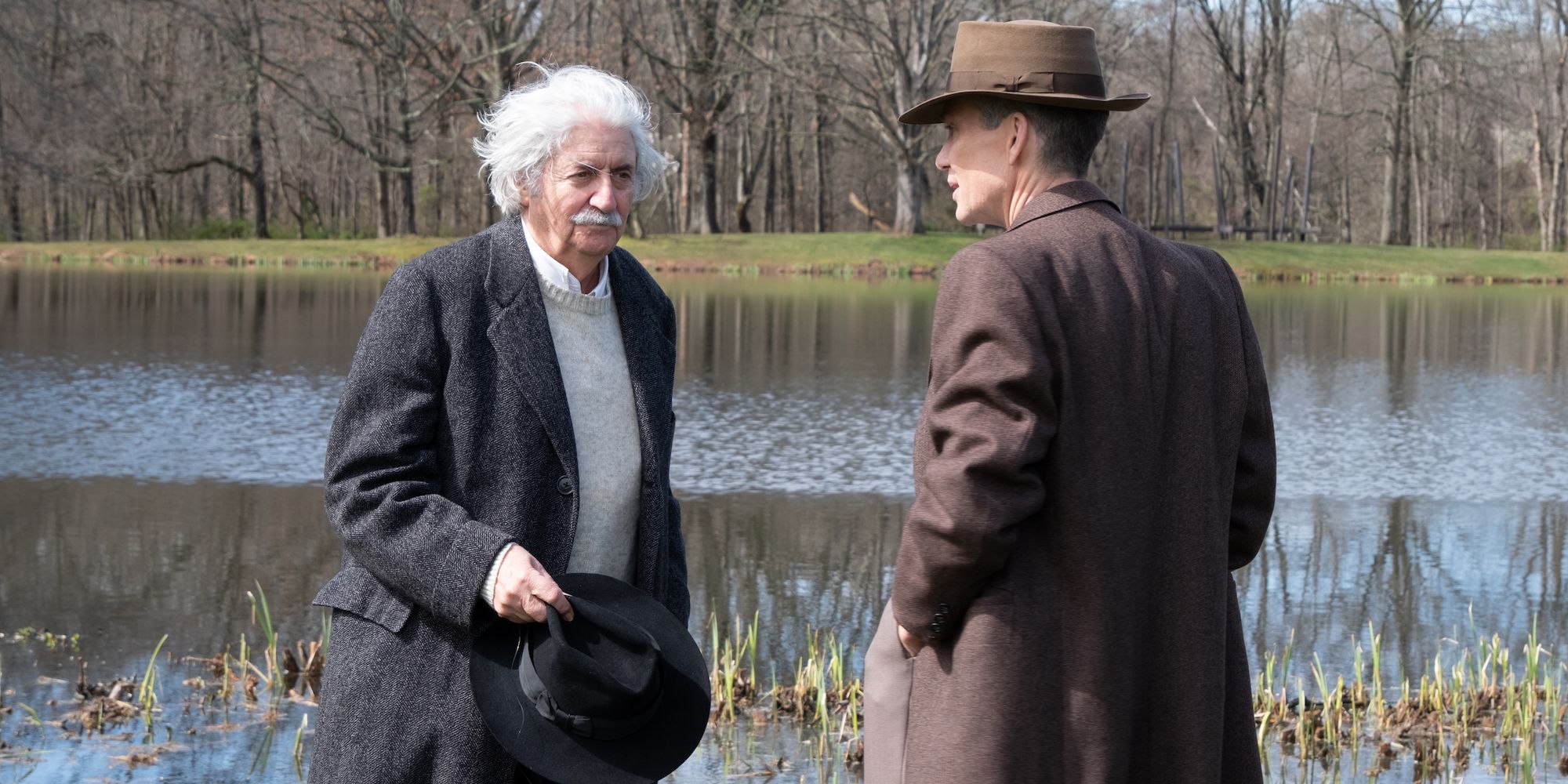
Oppenheimer and Einstein had a similar trajectory in life, and their final conversation in the film, which takes place in 1947, is representative of their paths in life. The conversation with Einstein involves Oppenheimer realizing he’d started a chain reaction in the arms race. The creation of the atomic bomb led to something even more dangerous, and Oppenheimer no longer had any control over it. Einstein admits he had lost the ability to understand what he’d started. His comment alludes to the fact that Einstein’s theory of relativity led to quantum mechanics, which ultimately paved the way for the atomic bomb’s creation.
Einstein predicts that Oppenheimer will be given a medal when the world feels like they’ve punished him enough, but it will be more about assuaging other people’s guilt for screwing him over — this includes Benny Safdie’s Edward Teller, who turned against Oppenheimer during the security hearings. The two scientists are essentially the same; they’re simply in different stages of their careers, as are the effects of their work’s destructive nature. Once it was in motion, neither Oppenheimer nor Einstein could stop what came next — they could only watch as it spiraled.
What Oppenheimer’s Destruction Of Earth & Final Shot Means
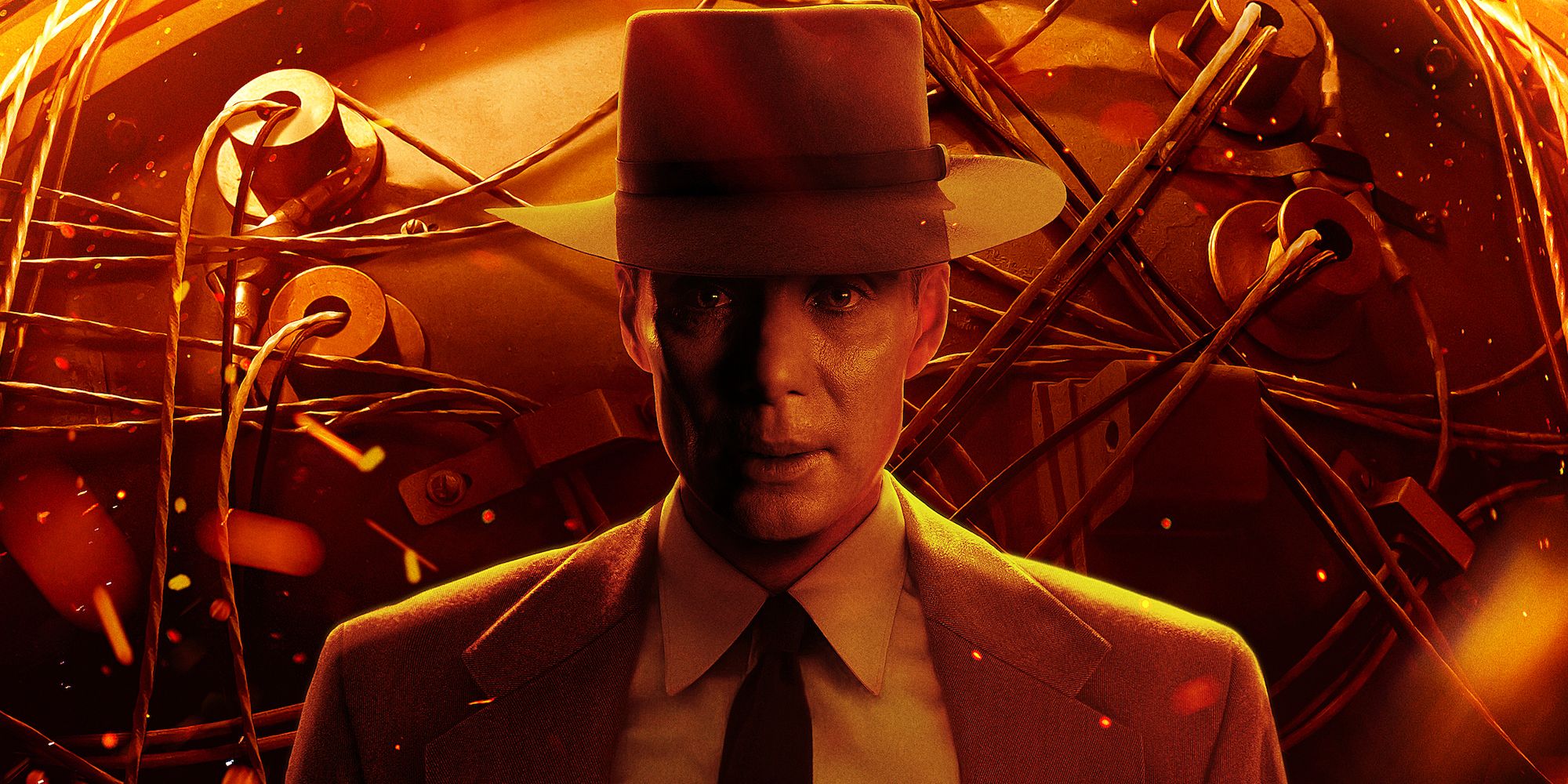
Oppenheimer’s final shot is of the destruction of Earth from nuclear war. Oppenheimer sees all this in his mind, imagining the catastrophe set loose by the creation of the atomic bomb, and how much worse it could be. In the final shot, Oppenheimer also watches raindrops on the pond, paralleling the start of the film. It’s almost as if he’s seeing the quantum world; the atoms are raindrops, small, but impactful. The explosions resulting from nuclear weapons are essentially the quantum world made bigger. Oppenheimer created what he feared as a young man, turning the world into a global horror; the atomic bomb was only the beginning.
What Happened To Oppenheimer After The Events Of The Movie
After his security clearance was revoked, Oppenheimer removed himself from the public eye. He moved with his family to St. John in the Virgin Islands. He continued to give lectures and grew more vocal about the ways in which scientific inventions were being used, and the threat they posed to the world. Together with Einstein and other scientists, Oppenheimer established The World Academy of Art and Science. He also joined Princeton’s Institute for Advanced Study as its director in 1947. The physicist also wrote about his concerns surrounding the use of science in the political sphere, ultimately publishing a book that included his lectures.
However, he never publicly opposed nuclear weapons the way some of his colleagues did, likely due to the security hearing. Throughout this time, Oppenheimer never stopped discussing science, and though he was still shunned from having any political power, he was eventually awarded the Enrico Fermi Award in 1963, which President John F. Kennedy wanted him to have for his contributions during World War II. Not long after, in 1965, Oppenheimer developed throat cancer and died in February 1967. His legacy lived on, but his power to influence was heavily tarnished during his lifetime, and it heavily affected the remainder of his days.
How Oppenheimer’s Ending Compares To The True Story

The majority of Oppenheimer‘s true story is brought to life accurately throughout the movie, including all the way through the ending. However, the details of Einstein and Oppenheimer’s conversation, in particular, are one of the ways the movie is likely to change the story. There is no record of what Einstein said to Oppenheimer and what the two brilliant men talked about. They were friendly with each other, so there was a chance that a conversation like this would take place. Even if not, it is a necessary inclusion for the thematic ideas Christopher Nolan’s movie plays with.
Otherwise, Oppenheimer does a fairly good job of sticking to the facts that are known. This includes incorporating details like Kitty not shaking Teller’s hand or the role that John F. Kennedy played in Lewis Strauss’ failed cabinet appointment. Considering how much of the real-life facts are recorded in history in some fashion, the mostly faithful adaptation is an impressive accomplishment for Nolan’s movie. It also helps ensure a sense of realism up until the credits begin to roll.
What Christopher Nolan Has Said About Oppenheimer’s Ending
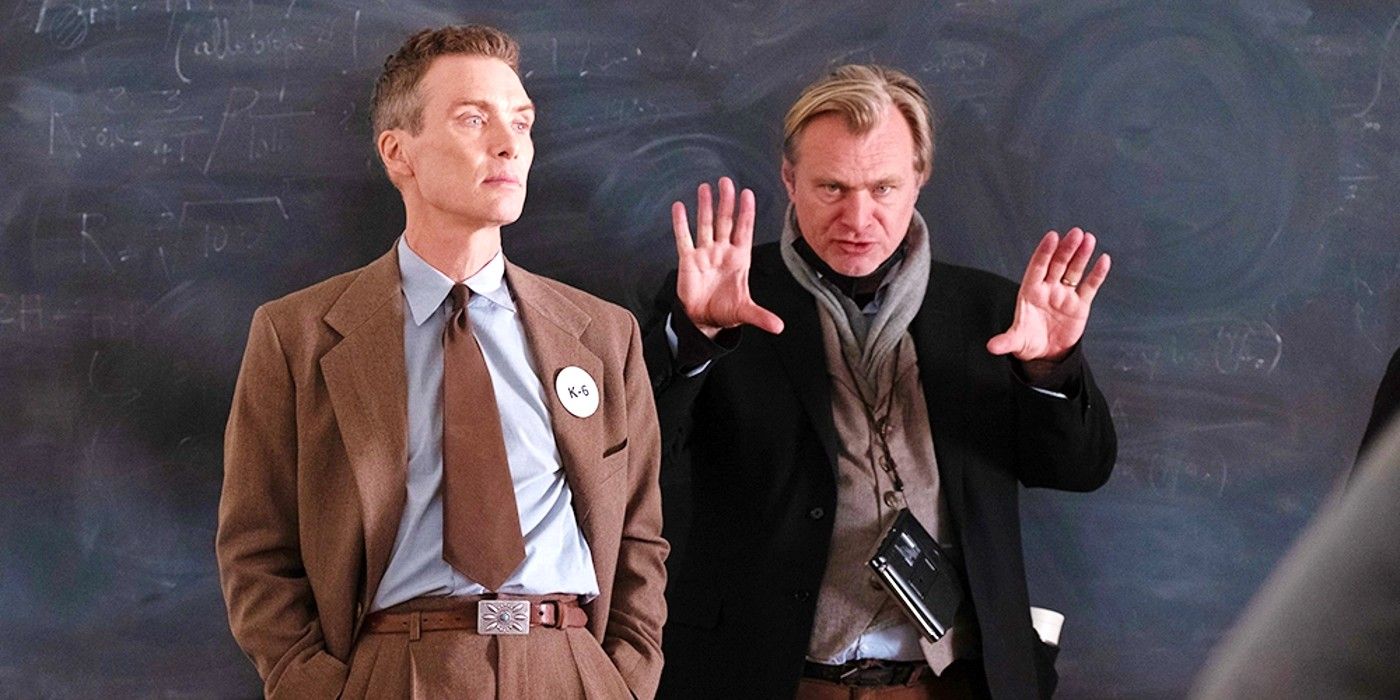
Christopher Nolan is notoriously tight-lipped when it comes to explaining his movies and their endings, but he has opened up a bit and shared his thoughts on Oppenheimer‘s ending. For starters, he spoke to Insider about the final moments. He said, “The ending was one of the first things that was defined for me in how I was going to write the script and everything in the film builds to that.” After reaffirming that he believes J. Robert Oppenheimer is the most important person who ever lived, he stated that the movie’s ending “is intended to reflect that.” The final shots of Earth being consumed by war represent that:
He is a person whose actions changed the world irrevocably. Like it or not, we live in his world, and we always will. And the ending is designed to reflect that and make that clear to people.
The Oppenheimer director has also talked about how the strong reactions from audiences is exactly what he was hoping for. Pre-release, Nolan compared the movie’s ending to Inception, and while Oppenheimer is not quite as perplexing in terms of one grand mystery, it does still invite conversations and different interpretations. Speaking to Vulture, Nolan said, “It’s the response I’d hoped for in terms of the strength of the reaction.” He then said he wanted “a strong set of troubling reverberations at the end. And I felt strongly that if I did my job right, those would land differently with each individual watching the film and different audiences.”
The Real Meaning: Can We Forgive Oppenheimer?

J. Robert Oppenheimer was dubbed the Father of the Atomic Bomb, and though he did what was asked of him, the scientist ultimately lost everything following the security hearing — his friends betrayed him, he was labeled a traitor, and his relationship with Jean Tatlock dragged into the proceedings. He was publicly humiliated, his reputation was smeared, and he never recovered. Regardless of his accomplishments, and despite going through the hearings without fighting back, Kitty claims the world won’t forgive him for the atomic bomb.
Even though Oppenheimer would go on to fight against nuclear programs and the development of the hydrogen bomb, President Truman dismissed his fears. The damage was done. Oppenheimer’s ending doesn’t take a side in the debate. Christopher Nolan’s Oppenheimer is self-aware, and it’s more an examination of a man with great ambition who succumbed to the desires of politicians, but who wasn’t himself without fault. Oppenheimer’s reactions are a mixture of awe and remorse, and the film itself isn’t so quick to label him a great man, though it sits in his perspective.
Can Oppenheimer be forgiven? In 2022, the Department of Energy released a statement reversing the decision to revoke Oppenheimer’s security clearance in 1954, which suggests the U.S. government has forgiven him. But has the world? It might depend on who one asks. The effects of the atomic bomb — the 200,000 deaths it caused in Hiroshima and Nagasaki, and the nuclear weapons development that came after — are still being felt to this day. While Oppenheimer became a proponent of nuclear peace later in life, his legacy is more of a cautionary tale.
Sources: Smithsonian Magazine, Insider, Vulture
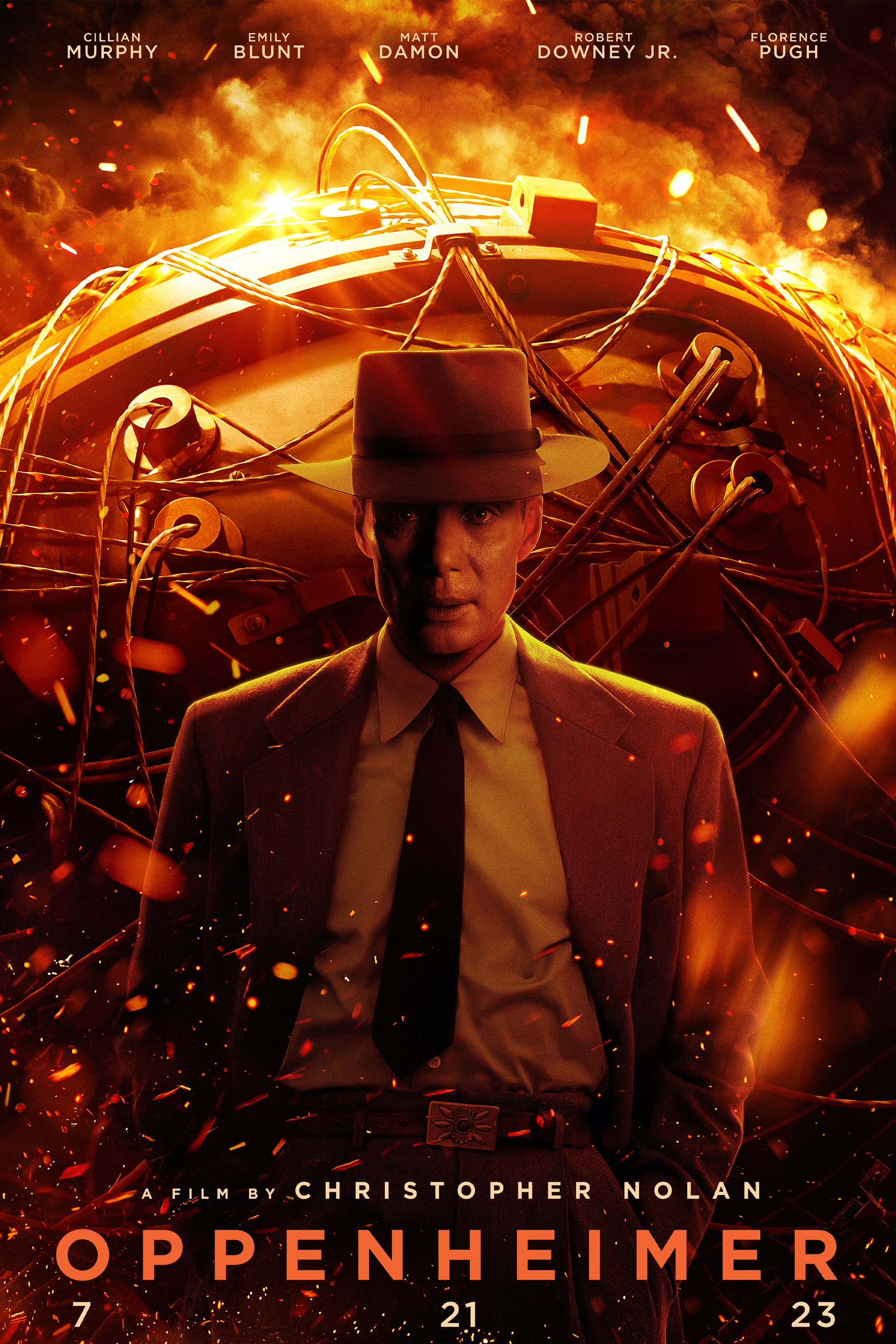
Oppenheimer
- Release Date:
- 2023-07-21
- Director:
- Christopher Nolan
- Cast:
- Cillian Murphy, Emily Blunt, Matt Damon, Robert Downey Jr., Rami Malek, Florence Pugh
- Rating:
- R
- Runtime:
- 150 Minutes
- Genres:
- Drama, History, Biography
- Writers:
- Christopher Nolan
- Budget:
- $100 Million
- Studio(s):
- Syncopy Inc., Atlas Entertainment
- Distributor(s):
- Universal Pictures
